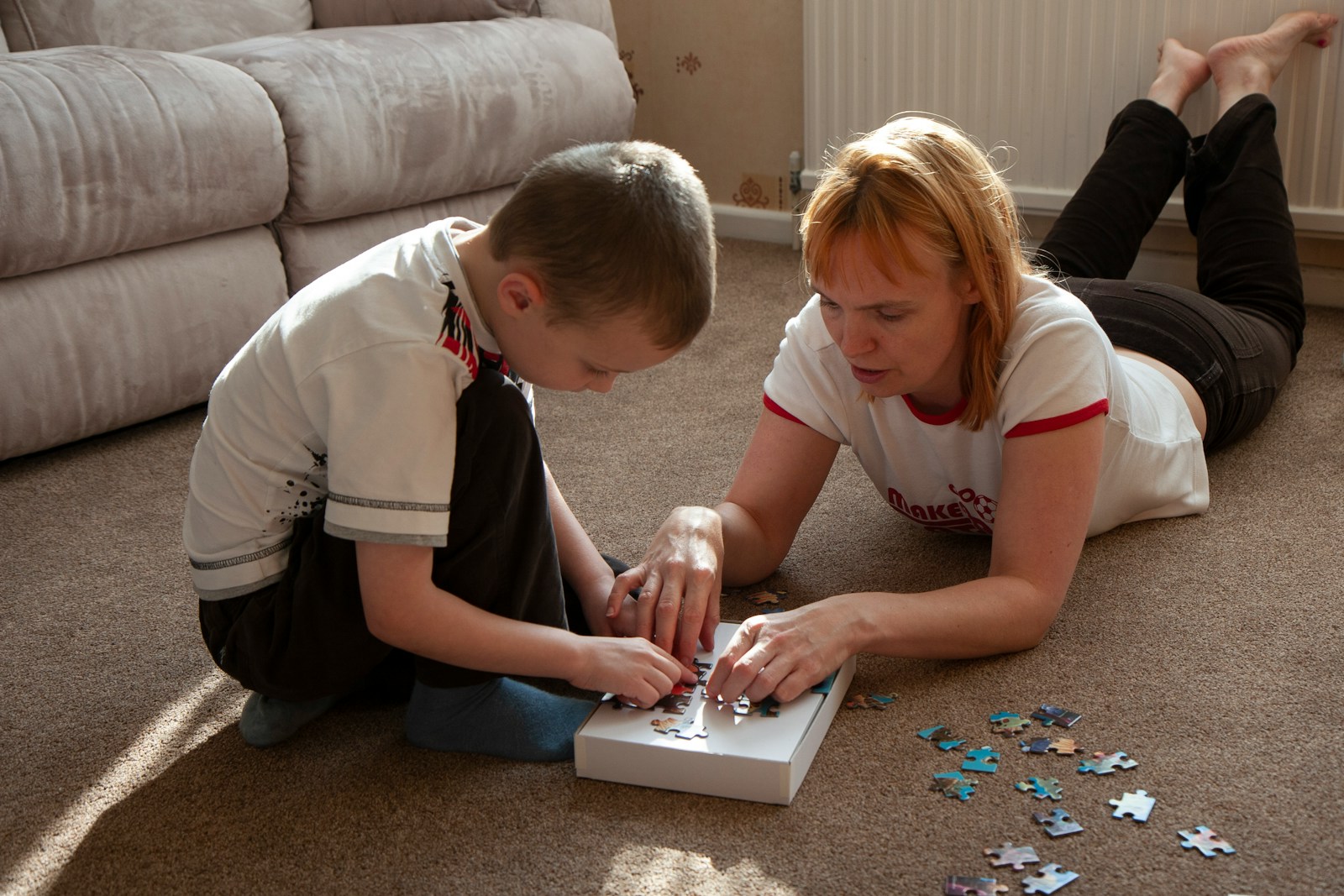Applied Behavior Analysis (ABA) therapy is considered the gold standard in treatment for children with autism spectrum disorder (ASD). It focuses on improving a child’s social skills, communication, and behavior through positive reinforcement and systematic teaching methods. While ABA therapists play a crucial role in the progress of children receiving therapy, parents and caregivers also have a significant impact on their child’s development. By actively participating in their child’s therapy and implementing strategies at home, parents can better support ABA therapy progress and enhance social skills development.
Key Takeaways
Parents and caregivers play a vital role in supporting ABA therapy progress and social skills development in children with autism spectrum disorder.
By being consistent in implementing strategies taught by the therapist, reinforcing positive behaviors, maintaining open communication with the therapist, and promoting generalization, parents can enhance the effectiveness of ABA therapy and help their child thrive.
Remember, the goal of ABA therapy is not just to improve behaviors during therapy sessions, but to equip the child with skills that they can use in their everyday life.
Why is it important that caregivers support ABA therapy progress?
Parents and caregivers are essential partners in the success of ABA therapy. You have a unique understanding of your child’s needs, preferences, and challenges. By actively participating in your child’s therapy sessions, you can reinforce skills taught by the therapist and ensure consistency across different environments. This consistency is incredibly important for generalization, so the child can apply learned skills in various settings.
Furthermore, as a caregiver, you are with your children for most of their waking hours. This means you have countless opportunities to reinforce positive behaviors, provide additional practice, and create a supportive environment for your child that fosters social skills development. By actively engaging in your child’s therapy progress, parents can maximize the benefits of ABA therapy and help their child reach their full potential.
What should caregivers do to support ABA therapy progress?
1. Provide Consistency
Consistency is key when it comes to supporting ABA therapy progress. You should work closely with your child’s therapist to understand the specific strategies being used during sessions. Ask as many questions as you feel necessary to be comfortable. By consistently implementing these strategies at home, you can reinforce what your child is learning in therapy. For example, if the therapist is using visual schedules to help the child with transitions, you can create a similar schedule at home and follow it consistently. This consistency helps the child generalize the skill and apply it in different settings.
2. Provide Reinforcement
Positive reinforcement is a fundamental aspect of ABA therapy. Try to identify your child’s preferred reinforcers, such as praise, tokens, or small rewards, and use them to reinforce desired behaviors. For example, if your child successfully completes a task or demonstrates a new skill, provide immediate praise and a small reward. Consistent reinforcement helps motivate your child to continue practicing and learning new skills.
3. Communicate with the Therapist
Regular communication with your child’s ABA therapist is crucial for supporting therapy progress. You should actively participate in therapy sessions when appropriate, observe your child’s progress, and discuss any concerns or questions with the therapist. By maintaining open lines of communication, you’ll be able to gain insights into your child’s progress, receive guidance on implementing strategies at home, and collaborate with the therapist to address any challenges that arise.
4. Practice Generalization
Generalization is an essential goal of ABA therapy. You should actively seek opportunities for your child to practice and apply learned skills in various settings and with different people. For example, if your child is working on greeting others appropriately, encourage them to greet family members, friends, or neighbors during social interactions. By providing opportunities for generalization, you can help your child transfer learned skills from therapy sessions to real-life situations.
Wrapping Up
Parents and caregivers play a vital role in supporting ABA therapy progress and social skills development in children with autism spectrum disorder. By being consistent in implementing strategies taught by the therapist, reinforcing positive behaviors, maintaining open communication with the therapist, and promoting generalization, you can enhance the effectiveness of ABA therapy and help your child thrive.
Remember, every child is unique, and what works for one may not work for another. It is essential for parents to collaborate closely with the ABA therapist to tailor strategies and interventions to their child’s specific needs. With the right support and active involvement from parents and caregivers, ABA therapy can have a profound impact on a child’s development and overall well-being.
FAQs
Who is Belay On?
We are a North Texas Autism Services company, providing the best standards of care to children in our community that have been diagnosed with autism. Principally Applied Behavior Analysis, or ABA is the bedrock of our in home services.
What is ABA therapy?
ABA (Applied Behavior Analysis) therapy is a type of therapy that focuses on improving specific behaviors in children with autism through positive reinforcement and repetition.
How can parents and caregivers support ABA therapy progress?
Parents and caregivers can support ABA therapy progress by being consistent in implementing strategies taught by the therapist, reinforcing positive behaviors, maintaining open communication with the therapist, and promoting generalization.
Why is consistency important in supporting ABA therapy progress?
Consistency is important because it helps the child generalize the skills learned in therapy and apply them in different settings. By consistently implementing strategies at home, parents can reinforce what the child is learning in therapy.
How can caregivers tailor strategies and interventions to their child's specific needs?
Every child is unique, and what works for one may not work for another. It is essential for parents to collaborate closely with the ABA therapist to tailor strategies to their child’s specific needs.
What are some red flags to watch out for when choosing an ABA therapist?
Some red flags to watch out for when choosing an ABA providers for your child include a lack of certification or credentials, a rigid or one-size-fits-all approach to therapy, and poor communication or collaboration with parents and other professionals. It’s also important to be cautious of therapists who make unrealistic promises or guarantees about outcomes.
How can my child get started?
Research indicates that early identification and intervention are crucial in enhancing the overall well-being of children with autism and their caregivers. At Belay On, our primary objective is to offer comprehensive support to both you and your child throughout this journey. We encourage you to reach out to us for further information on the various ways we can assist your child and family.

